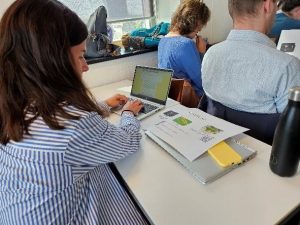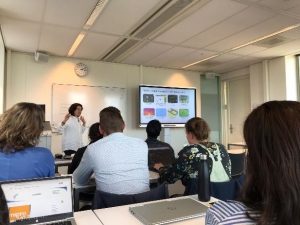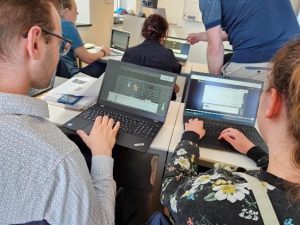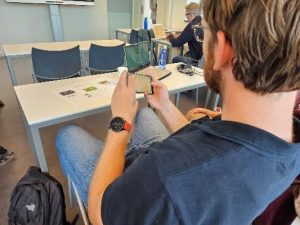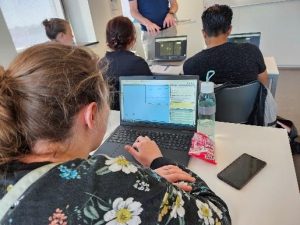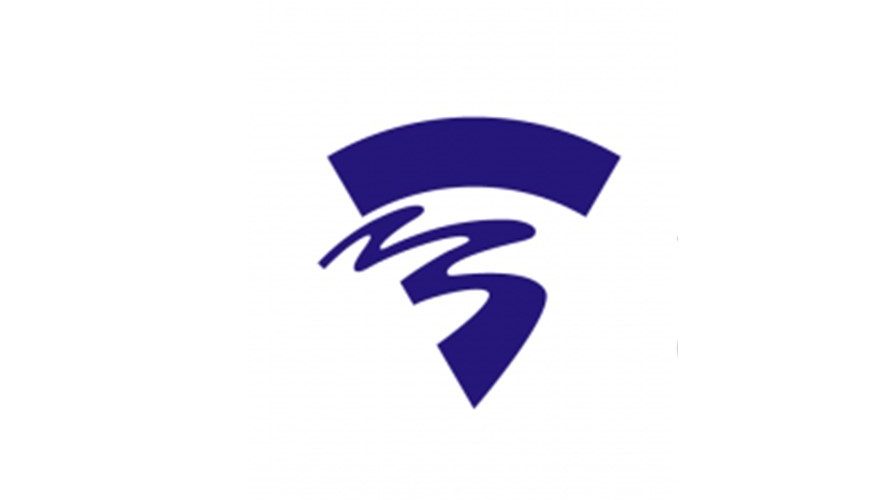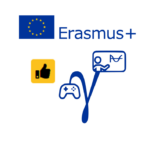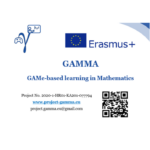The Dutch Multiplier Event of the GAMMA project was conducted by the AUAS (Amsterdam University of Applied Sciences) and held in the Kohnstammhuis building of the University. The meeting was organized on 31 May, 2023 in the afternoon. Mathematics teachers from secondary schools in several places in the Netherlands who follow the master teacher math education program at AUAS were invited to participate in the event. Fifteen participants participated in the meeting.
The meeting activities were directed to increase teachers’ awareness about the pedagogical possibilities of Digital Game-Based Learning (DGBL) for learning mathematics and to increase teachers’ interest in using DGBL. In the first part of the meeting, the GAMMA project was introduced: goals, activities, partners and the intellectual outputs. The examples of research on GBL and discussed the benefits and challenges of implementing DGBL in practice are provided. Very few participant teachers had experience with teaching with games. When they had it was mainly with gamification. In this sense the idea of using games with a transformative potential in which students can take the role of creator (e.g adapting the game or even creating a new game) was new for most participants. The three main intellectual outputs were briefly presented: the Handbook for teachers, the seven games and the eight teaching scenarios. The notion of teaching scenario needed more explanation as it should not be confused with a lesson plan. This is illustrated with a concrete example of the scenario of the Function Dungeon game, drawing attention to specific pedagogical moves in GBL such as pre-game, tutoring gameplay, and debriefing, as well as the need that the teacher supports the students during the whole process in connecting the math with the game goals and mechanics.
In the second part of the meeting, participants explored the games themselves; we had planned two rounds of playing, each with three to four games and four scenarios. The links for the games were provided and printed copies of the teaching scenarios were available on the tables. The participants could choose which games they would explore first. The teachers played the games on their own devices (mobile and computer) and collaborated with each other. The workshop turned out to be too short for playing two rounds. Therefore, the materials regarding the second round were distributed afterwards to the participants electronically.
The workshop is closed by collecting the participants’ main impressions of the workshop and discussing some aspects that were brought up. Most participants were interested in the materials and liked the games. Some were already planning to use the games soon with their own students. Participants found that the meeting was well organized and met their expectations. The aims of the meeting were clear and the content interesting. Most participants found the meeting useful. The great majority agreed or fully agreed that the event increased their knowledge about game-based learning and intend to share it with their colleagues. The conclusion is that it was a successful event.
